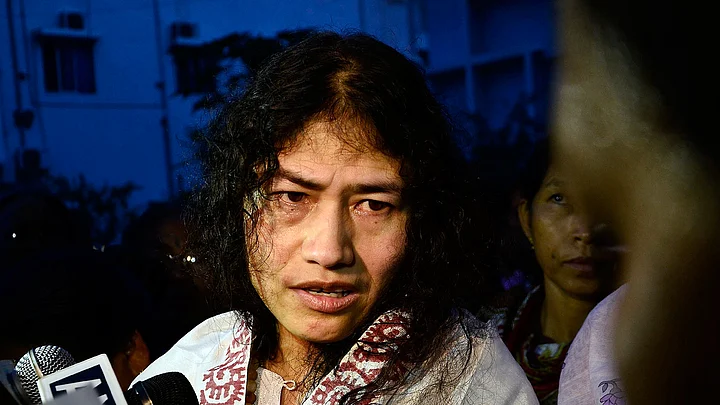In India’s north eastern states, the Armed Forces Special Powers Act (AFSPA) is considered a vehicle for human rights abuses, and not without reason. For years at end, security forces and police have used it to enjoy complete immunity from criminal prosecution, even if they have inflicted terrible atrocities upon innocent civilians.
Earlier, in May this year, the Tripura government drew praise from many quarters for withdrawing the law and ending 18 years of impunity. Now, without a trace of irony, the Meghalaya High Court has directed the Centre to impose AFSPA in a certain region of the state, in order to protect citizens’ lives and liberty.
In a 2 November ruling, a Full Bench of the court asked the government to actively consider imposing the law in the Garo Hills belt. The court’s direction came in the wake of bandhs and hartals called by two proscribed insurgent outfits- the Garo National Liberation Army (GNLA) and Hynniewtrep National Liberation Council (HNLC) which purportedly crippled the civil administration in the state. This direction is bound to raise searching questions of constitutional law, besides complicating relations between Meghalaya and the Centre.
Whither Judicial Restraint ?
It appears that the judges let a sense of alarm and a belief in judicial superiority get the better of them. For, how else can one explain the judiciary’s barging into a territory which exclusively belongs to the Executive?
Citing a string of judgements of the Supreme Court and other high courts in which the judiciary has come down heavily upon political parties for hobbling civic life through strike calls, the bench made it abundantly clear that a week-kneed response was absolutely unacceptable. And then it donned the rescuer’s mantle itself.
In May, the court had directed the Centre and Ministry of Home Affairs (MHA) to inform what measures have been taken to bring the situation under control, and whether additional armed police and paramilitary forces could be deployed.
On 19 October, the MHA submitted an affidavit, in which it listed all the steps being taken jointly by the Centre and state government of Meghalaya. The MHA also pointed out categorically that “law and order” was a State Subject under the constitution, and hence the Centre would desist from taking any unilateral action.
However, this explanation did not find favour with the court. Stating that although judicial power comes with an even higher responsibility of judicial restraint, the court could not sit idle when the law and order situation has deteriorated “beyond redemption” and citizens’ fundamental right to life and personal liberty was in peril.
The court circumvented the Centre’s correct constitutional stance by citing its 1997 judgement upholding the validity of the AFSPA. That judgement has been repeatedly criticized for overlooking the fact that too wide amplitude of powers to the armed forces can spell doom for citizens’ human rights. Moreover, the judges seem to have ignored the Supreme Court’s recent expression of consternation about the abuse of the AFSPA in the neighbouring state of Manipur.
Strident Media Gag
The 2 November Order isn’t the only instance of the court overstepping its limits. Previously, on 27 May this year, the same bench, in an interim Order, prohibited the media- both print and electronic, from publishing any statement or bandh calls given by the banned outfits.
Not only that, it sanctioned ample powers of the police to act against any media house flouting the order, and also reserved its right to invoke laws of criminal contempt of court. This gag order, which has surprisingly gone unchallenged, seems to be oblivious of established judicial precedent holding that such prohibition violates the press’s fundamental right of freedom of expression.
It is yet to be seen how both the Centre and the Meghalaya government would react to the court’s verdict. Only time will tell whether they would submit to a judicial diktat which transgresses constitutional norms, or go on appeal to the Supreme Court. But that should not be a ground for not subjecting the ruling to the criticism and critique it warrants.
